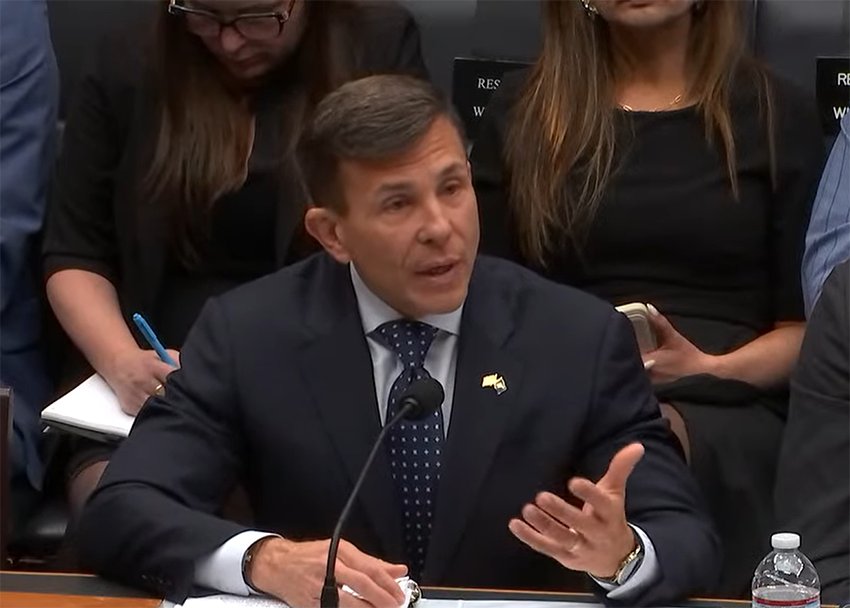The U.S. Food and Drug Administration’s Accelerated Approval Pathway enables the timely development of treatments for severely ill patients who have few if any other treatment options. It allows for the approval of a treatment on the basis of an intermediate or surrogate endpoint that is reasonably likely to predict clinical benefit. Intermediate endpoints can be measured sooner than traditional clinical endpoints, thereby providing initial access to the treatment while additional confirmatory studies are underway; surrogate endpoints are biomarkers thought to predict clinical benefit.
The program has been successful in bringing dozens of therapies that treat serious conditions and address unmet medical needs to a variety of patient populations in numerous therapeutic areas since its creation in 1992. Yet, insurers have repeatedly created reimbursement barriers to evade their obligation to coverage, such as implementing lengthy additional utilization management tools, temporarily or permanently excluding some Accelerated Approval drugs from coverage, or “slow-walking” access decisions.
“Accelerated Approval is a pathway that allows certain therapies that address unmet needs to come to market faster,” began Karin Hoelzer, DVM, Ph.D., Senior Director of Patient Advocacy at the Biotechnology Innovation Organization (BIO), speaking at BIO’s first Patient Advocacy Coffee Chat of 2025. “And based on the latest data I’ve seen, that translates to getting treatments to patients on average 3.2 years faster, which is huge for patients and families that are waiting for therapies. But we’ve seen a variety of coverage and reimbursement challenges from public payers and private payers.”
The value of the Accelerated Approval Pathway
“The Accelerated Approval Pathway is really important to our community because, obviously, it allows for earlier access to these innovative therapies,” said Jenna Riemenschneider, Vice President of Advocacy and Policy at the Asthma and Allergy Foundation of America. “We know that too many patients face limited treatment or no treatment options, and the current approval process can take years.”
Accelerated Approval is especially impactful in areas like oncology, where the difference between remission and death can come down to months.
In oncology, in many instances, Accelerated Approval “provides access to new therapies on the magnitude of one to three years earlier than if one had to wait for an endpoint like overall survival to be fully evaluated,” said Jeff Allen, CEO of Friends of Cancer Research. “And that’s not meant to dismiss the importance of those long-term outcomes, but it is a balance, particularly for those individuals that are afflicted with a serious or life-threatening illness who need timely access to a new compound in that one- to three-year period.”
The urgency expands outside of oncology, including to rare diseases. “Because of the nature of these neuromuscular conditions, the Accelerated Approval Pathway is incredibly important to our community, because it allows products to be approved based upon the surrogate endpoints that then reasonably predicts a likelihood of a clinical benefit,” explained Paul Melmeyer, Executive Vice President of Public Policy and Advocacy at the Muscular Dystrophy Association.
This means therapies approved through Accelerated Approval can get to patients before irreparable muscle loss occurs.
“This gets products to our community incredibly quickly compared to if we were relying on clinical benefit alone,” noted Melmeyer. “Consequently, Accelerated Approval is very important.”
How the Accelerated Approval Pathway speeds up drug development
Insurers have pushed back on reimbursing for treatments approved via Accelerated Approval because these approvals rely on surrogate endpoints to speed up clinical trials.
“A surrogate endpoint is a marker, such as a laboratory measurement, radiographic image, physical sign or other measure that is thought to predict clinical benefit but is not itself a measure of clinical benefit,” explains the FDA.
Allen emphasized the amount of data supporting these endpoints: “Drugs greenlit under Accelerated Approval have clinical trial results based on endpoints that are reasonably likely to predict benefit in the long term,” he says. “For example, things like an intermediate endpoint versus a surrogate endpoint: one being an earlier indicator of potential long-term benefit, where a surrogate may refer more toward a replacement or something that has been fully verified to be a predictor of a subsequent event. That takes a great deal of evidence as it should in order to establish surrogacy or replacement for an endpoint, and so that’s why the law was written in such a way that it is based on the reasonable likelihood.”
And drug companies are not off the hook when it comes to further research when a therapy has received Accelerated Approval, noted Allen.
The FDA makes this clear.
“Drug companies are still required to conduct studies to confirm the anticipated clinical benefit,” says the FDA. “If the confirmatory trial shows that the drug actually provides a clinical benefit, then the FDA grants traditional approval for the drug. If the confirmatory trial does not show that the drug provides clinical benefit, FDA has regulatory procedures in place that could lead to removing the drug from the market.”
Reimbursement challenges
“We have lots of experience, unfortunately, with what the payer community has placed at our feet when it comes to actually covering these therapies,” lamented Melmeyer.
“What we’ve seen from a number of different payers is a reluctance to cover these therapies: they will consider these therapies to be either experimental, which, of course, is not true, given that they are FDA approved; they will consider them as non-medically necessary, which is perhaps the most patently false approach that they can take given that the very qualification for the Accelerated Approval Pathway in the very first place is that it must be a therapy that treats a serious condition with an unmet medical need; and then, regardless of whether or not they define drugs as experimental or non-medically necessary, they will find other loopholes to not cover these drugs in their plans,” he continued.
However, there is a great deal of advocacy work being done to bring these barriers down.
Accelerated Approval meets access
Not all insurers are the same when it comes to pushback against covering therapies greenlit under Accelerated Approval. For example, by law, Medicaid must cover almost all FDA-approved drugs, including accelerated approval drugs, with limited exceptions. However, this is not the case for Medicare and private insurers.
Melmeyer explained that advocacy tactics to counter insurers denying coverage changes on a case-by-case basis.
“When it comes to private plans purchased through the marketplace, there’s a required appeals process that oftentimes does work,” he said. “Sometimes the community has to start pressure campaigns, sometimes it’s petitions, and sometimes it’s going to local news to talk about a child who’s being denied coverage to an incredibly impactful therapy that’s approved by the FDA. So it just depends on the kind of insurance for what’s going to work. But by and large, there have always been successful ways to get these non-coverage determinations overturned.”
In December 2024, the Centers for Medicare and Medicaid Services (CMS) issued a directive telling private insurers providing Medicare Advantage plans to cover Biogen’s amyotrophic lateral sclerosis (ALS) drug Qalsody, which received accelerated approval, after finding instances of noncoverage.
“CMS does not make a distinction” between traditional and accelerated approval, which “relies on surrogate endpoints that can reasonably predict whether a treatment will result in clinical benefit,” BIO explained in December. “For more than 30 years, the pathway has successfully sped up the development of new medicines for people with life-threatening conditions and few treatment options.”
It is undeniably frustrating, and infuriating, to see patients with delayed or denied coverage for treatments they truly need, but advocacy organizations have been working tirelessly to make change.
“The denial of coverage does impact millions of families that do not have options for better management of their life-threatening food allergies,” said Riemenschneider.
“It’s critically important to be treating patients as soon as possible within essentially every neuromuscular condition,” added Melmeyer.
The Friends of Cancer Research Drug Development Dashboard provides detailed, up-to-date insights on oncology drugs originally approved through accelerated approval. It shows the broad impact this pathway has had on many patient populations. Whether it is oncology, allergy, rare disease, or any of the other therapeutic areas, the Accelerated Approval Pathway was fundamentally created to help address unmet needs when it comes to treating our sickest patients.




